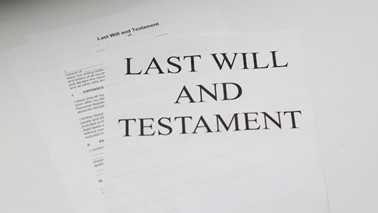Losing a loved one is never easy, and dealing with legal matters in the midst of grief can be overwhelming. One of the key legal processes that may follow is probate, a court-supervised procedure for settling a deceased person’s estate. The probate process ensures that the decedent’s assets are distributed according to their will or, if no will exists, in accordance with state law. The following article outlines the process, explains what happens when someone dies without a will or with a contested will, and discusses how estate lawyers in Los Angeles can assist in navigating through and resolving related issues.
What Is Probate?
Probate is a legal process that involves identifying, managing, and distributing a deceased person’s assets. It typically includes the following steps:
Filing a Petition for Probate
The process begins with filing a petition in the appropriate court to initiate probate. The petitioner is usually the executor named in the will or a close relative if there is no will. This step establishes jurisdiction and notifies the court of the decedent’s death.
Appointment of an Executor or Administrator
If a will exists, the court typically appoints the named executor to oversee the probate process. If there’s no will, the court appoints an administrator, usually a close relative, to act in a similar capacity.
Notification to Heirs and Creditors
The executor or administrator must notify all heirs, beneficiaries, and known creditors of the proceedings. This gives creditors the opportunity to make claims against the estate for any outstanding debts.
Inventory and Appraisal of Assets
The executor or administrator is responsible for identifying and inventorying the decedent’s assets, including real estate, bank accounts, investments, and personal property. In some cases, an appraisal may be required to determine the value of certain assets.
Payment of Debts and Taxes
Before assets can be distributed to heirs or beneficiaries, outstanding debts and taxes must be settled. This includes paying off creditors, settling any outstanding income taxes, and handling estate taxes if applicable.
Distribution of Assets
Once debts and taxes are paid, the executor or administrator can distribute the remaining assets to the heirs and beneficiaries according to the terms of the will or state law if no will exists.
Closure of Probate
After the assets have been distributed, the executor or administrator files a final accounting with the court. Once the court approves the accounting, probate is closed, and the executor or administrator is released from their duties.
What Happens When There’s No Will?
When someone dies without a will, they are said to have died “intestate.” In this case, the state laws of intestate succession determine how the decedent’s assets are distributed. Generally, assets are distributed to the decedent’s closest relatives, such as their spouse, children, parents, or siblings. If no close relatives are found, the assets may be escheated to the state.
The probate process is typically longer and more complicated without a will, as the court must determine who the rightful heirs are. An attorney can help navigate the complexities of intestate probate and ensure that the estate is distributed according to state law.
What Happens When There’s a Contested Will?
A will may be contested if someone believes it is invalid due to issues like fraud, undue influence, lack of capacity, or improper execution. When a will is contested, the probate process can become contentious and prolonged, potentially requiring a court trial to resolve the dispute.
Legal counsel is crucial in contested probate cases. They can help gather evidence, represent the interests of their clients, and work toward a resolution that aligns with the decedent’s wishes and state law.
How Attorneys Can Help
Attorneys play a vital role in guiding families through the probate process. They offer expertise in:
- Navigating Probate Requirements: These legal professionals are familiar with the legal requirements for probate and can help executors or administrators fulfill their duties accurately and efficiently.
- Managing Probate Disputes: If disputes arise during probate, attorneys can provide legal representation and work to resolve conflicts through negotiation or litigation if necessary.
- Providing Estate Planning Advice: Legal counsel can offer advice on creating a will, establishing trusts, and taking other steps to ensure a smoother probate process for the future.
Conclusion
The probate process can be complex and emotionally challenging, especially when grieving the loss of a loved one. Understanding the steps involved and knowing what to expect can help reduce stress and confusion. Whether there’s a will or not, or if the will is contested, attorneys are invaluable in guiding families through probate, ensuring that the decedent’s wishes are honored, and that assets are distributed legally and fairly. Proper preparation and the assistance of a skilled legal professional can make the probate process more manageable and lead to a smoother resolution.


